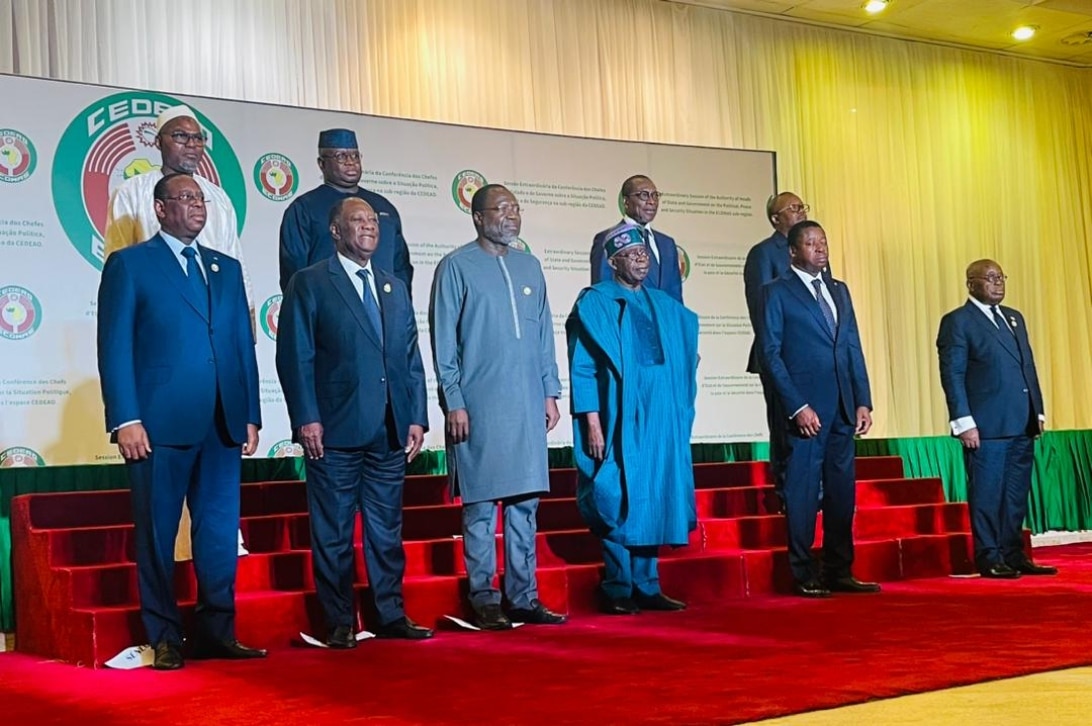The Economic Community of West African States (ECOWAS) lifted the sanctions on Niger, Burkina Faso, and Mali.
ECOWAS in a meeting on Saturday, led by President Bola Tinubu lifted economic, travel, and commercial.
These sanctions were imposed in January 2022 in response to military coups that ousted their democratically elected leaders.
The sanctions were aimed to pressure the juntas to return to civilian rule.
While the lifting of sanctions signals progress, questions remain about the effectiveness of the approach.
The sanctions lifting comes after a former Nigeria Military Leader, Yakubu Gowon appealed to the body.
Recall that the three nations announced their exit from ECOWAS following the sanctions imposed on them.
The West Africa's junta leaders faulted the sanctions, adding that the coup was necessary.
They accused their leaders of corruption, amongst other allegations.
The Trigger: Military Coups and the ECOWAS Response
In 2022, each of the three aforementioned countries witnessed a military coup. In Niger, the democratically elected president Mohamed Bazoum was overthrown in a January coup led by Colonel Mohamed Bako.
Similarly, in Burkina Faso, a military junta led by Lieutenant Colonel Paul-Henri Sandaogo Damiba seized power in January.
Mali experienced its second military coup in May 2021. Colonel Assimi Goïta consolidated his power and further delayed the promised return to civilian rule.
Concerned about the erosion of democratic norms in the region, ECOWAS imposed sanctions on the junta leaders and their associates.
These sanctions included travel bans, asset freezes, and the suspension of financial assistance.
They were aimed at isolating the juntas and pressuring them to negotiate a peaceful transition back to democracy.
The Lifting of Sanctions: A Sign of Progress or a Calculated Risk?
After months of negotiations and perceived progress in the transition plans, ECOWAS announced the lifting of sanctions on February 24th, 2024.
The decision was primarily based on the following factors:
- Niger: The junta agreed to hold elections by the end of 2024.
- Burkina Faso: The junta published a roadmap for a transition to civilian rule by 2025.
- Mali: The junta agreed to a revised electoral timetable, with elections scheduled for February 2024.
While the lifting of sanctions represents a potential step forward in the restoration of democracy, concerns remain:
- Lack of Concrete Progress: The proposed timelines for elections in each country are ambitious, and concrete steps towards achieving them are still lacking.
- Human Rights Abuses: All three countries continue to face allegations of human rights abuses under the junta rule, raising questions about the sustainability of any transition process.
- Civil Society Concerns: Many civil society groups in the affected countries express concerns that the lifting of sanctions could embolden the juntas and weaken their bargaining power in negotiations.
The Road Ahead: Uncertainties and Potential Implications
The lifting of sanctions does not signify the end of the story. The success of this decision hinges on the following factors:
- Good Faith of the Juntas: Whether the juntas genuinely adhere to their promises of holding elections and respecting democratic norms will be crucial.
- International Monitoring: Continued international pressure and monitoring are essential to ensure the transition process remains on track.
- Engagement with Civil Society: Including civil society groups in the dialogue and ensuring their voices are heard will be vital for a legitimate and inclusive transition.
Only time will tell whether the lifting of sanctions will catalyze a genuine democratic transition in Niger, Burkina Faso, and Mali.
The situation remains fluid, and continued vigilance from the international community and civil society is crucial to ensure a successful and sustainable return to democratic rule in these troubled nations.




















